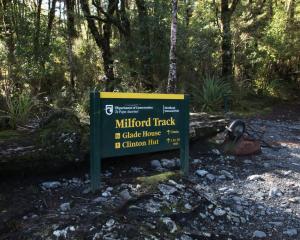Cancer death rates in Otago were higher than the national rate between 2006 and 2008, but not by much.
Reports released this week by the Ministry of Health and the National Health Board showed the Otago rate was considered statistically significantly higher than the national rate, but ministry staff said this was "only just" higher.
The national age-standardised death rate was about 135 per 100,000 population, with estimated death rates ranging from about 118 in the Waitemata District Health Board area to about 165 in Tairawhiti for the two-year period.
Otago's deaths were about 140 per 100,000.
Southland's rate, which looked similar to Otago's, was not considered significantly higher than the national rate because since Southland's population was lower, its results were less statistically reliable.
National clinical director, cancer programme, Dr John Childs said the publications, which show regional differences for the first time, were statistical reports and did not attempt to explain the observations.
The information gave no indication of the underlying reasons for the differences and he cautioned against drawing inferences from them.
The data did not necessarily reflect differences in service provision by district health boards.
In the reports, patients were linked to their own home district health board area, but they could have received treatment from outside that area, he said.
While the data was adjusted for age, it was not corrected for socio-economic deprivation or ethnicity.
Some district health boards had a higher mortality rate because they had a higher incidence of certain cancers and in the case of lung cancer, for instance, 90% of all those who got it died from it eventually.
The data led to "quite a number of questions" and he was hopeful health researchers would take up the challenge to find out why the differences existed.
Some research was already being done in this area, but there was "a lot more work to be done", he said.
Such work could help the ministry's development of programmes over time.
Otago was one of eight areas regarded as having a significantly higher death rate while only Waitemata, Auckland, Capital and Coast and Canterbury had significantly lower death rates.
Otago and Southland's cancer registrations were recorded as statistically significantly lower than the national rate, along with four other areas.
Canterbury District Health Board was among four boards which had significantly more registrations.
Registration and death rates for a variety of cancers showed South Canterbury, Otago and Southland were significantly higher for colorectal cancer. This cancer was the second most common cause of cancer deaths in 2008, accounting for 15% of all deaths compared with lung cancer on 19%.
The Waikato region also has a significantly higher death rate from this disease.
The only area with a mortality rate from this cancer which was significantly lower than the national rate was Waitemata.
The reports showed prostate cancer was the most common cancer to be registered in 2008.
It was the third most common cause of cancer death in men, responsible for 15% of male cancer deaths that year.
Registrations of this cancer were regarded as significantly lower in Otago and Southland and South Canterbury, while Canterbury and Nelson-Marlborough were among those areas with rates considered significantly higher than the national rate.
For women, breast cancer was the second most common cause of cancer death, also accounting for 15% of cancer deaths among females.
In breast cancer and lung cancer, Otago and Southland rates for registration and deaths were not regarded as statistically significantly different from the national rate.
Cancer deaths 2006-08
• Cancer leading cause of death - 29% of all deaths
• Lung cancer still biggest killer - 19% of cancer deaths
• Colorectal cancer second - 15%
• Prostate cancer most commonly registered cancer 28%
• 15% of male cancer deaths from prostate cancer
• 15% of female cancer deaths from breast cancer
- Reports released by Ministry of Health and National Health Board












